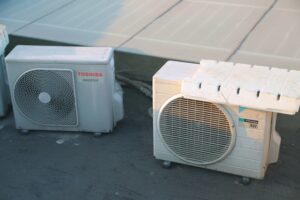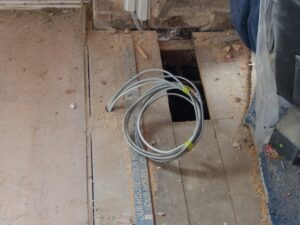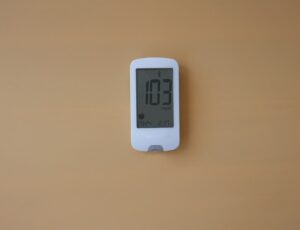When considering the health of you and your family, ensuring access to clean drinking water is essential. The best water filtration system for your home will depend on your specific needs, such as the water quality in your area and your budget. Knowing what contaminants might be present can also help in selecting a system that meets health guidelines and provides optimal filtration.
At Excel Mechanical, we understand the importance of clean water for your health and daily living. With our professional expertise, you can trust that we will recommend and install a water filtration system tailored to your home. We prioritize exceptional quality and great value, ensuring you receive a solution that works effectively for your individual requirements.
Choosing the right water filter can feel overwhelming with so many options available. By focusing on the specific contaminants in your water and understanding the various filtration methods, you can make an informed decision. We’re here to guide you through the selection process and provide the installation services you need for a reliable and efficient water filtration solution.
Assessing Your Water Filtration Needs
Before choosing a water filtration system, you need to evaluate specific factors related to your water quality and household demands. This assessment will help you determine the best solution tailored to your needs.
Evaluating Water Quality
Start by understanding your local water quality. Municipal water suppliers provide annual water quality reports that detail the levels of contaminants such as lead, chlorine, and PFAS (per- and polyfluoroalkyl substances). If you rely on well water, consider having it tested for impurities.
A water quality test will reveal hard water, indicated by high levels of calcium and magnesium. Hard water can lead to scaling in pipes and appliances, while contaminants can pose health risks. Knowing this information will guide you in selecting a filtration system that effectively addresses these issues.
Understanding Contaminants
Different contaminants require different filtration methods. Common issues include:
- Chlorine: Often used in municipal systems, it affects taste and odor.
- PFAS: Emerging contaminants linked to various health issues.
- Heavy Metals: Lead and mercury can originate from plumbing.
Each of these pollutants may necessitate specific filtration technologies like activated carbon, reverse osmosis, or UV systems. A thorough understanding of the contaminants in your water will enable you to choose a system that effectively targets and eliminates them.
Determining Flow Rate Requirements
Your household’s water usage influences flow rate requirements. Check your daily water consumption, particularly during peak usage times, to ensure your filtration system can handle it. Residential systems typically need a flow rate of 5-15 gallons per minute (GPM), while larger setups may be required for high-demand needs.
Conversely, a system with an insufficient flow rate can lead to reduced water pressure and inconvenience. By evaluating your specific needs, you will ensure the filtration solution effectively meets your household demands while maintaining adequate performance.
For personalized assessments and options, consider consulting with us. Our professionals can provide tailored HVAC and plumbing solutions, helping you find the best filtration system for your needs and budget.
Types of Water Filtration Systems
Understanding the various water filtration systems can help you choose the right one for your home. Options vary based on needs, installation, and effectiveness. Here are the primary types to consider.
Whole-House Filters vs. Point-of-Use Systems
Whole-house water filters treat water at the point it enters your home, providing clean water for all taps and appliances. These systems are ideal for families or those with high water usage. They typically remove contaminants, such as chlorine, sediment, and heavy metals, providing comprehensive protection.
Advantages of Whole-House Filters:
- Convenience of filtered water throughout the home.
- Reduces scale buildup in plumbing and appliances.
In contrast, point-of-use systems, like under-sink filters or countertop models, focus on individual taps. They are often less expensive and easier to install. If you primarily need filtered drinking water, these may be a better choice for smaller households.
Pitcher Filters and Faucet-Mounted Units
Pitcher filters are a popular, cost-effective solution for clean drinking water. They use activated carbon to remove impurities and can be easily stored in your refrigerator. While convenient, they require regular refilling and have a limited capacity.
Key Features:
- Simple to use and affordable.
- Require manual effort to keep filled.
Faucet-mounted filters attach directly to your kitchen faucet, providing instant access to filter water. They are straightforward to install and remove, ideal for renters or those seeking a temporary solution. Though they save space, they’re less effective against certain contaminants compared to more comprehensive systems.
Under-Sink and Countertop Filters
Under-sink water filters are installed beneath your kitchen sink and connect directly to your water supply. They typically offer advanced filtration, often utilizing reverse osmosis. This option is excellent for those wanting high-quality drinking water without countertop clutter.
Benefits Include:
- Space-saving and discreet installation.
- Typically provide high filtration efficiency.
Countertop filters sit on your kitchen counter and filter water as it dispenses. They are easier to install than under-sink models, requiring minimal plumbing. While effective, they take up some counter space, which may be a factor in your decision.
When considering your options, trust Excel Mechanical for expert guidance. We offer tailored solutions to fit your individual needs and budget, ensuring exceptional quality and value for HVAC and plumbing services.
Filter Technologies and Their Effectiveness
Understanding different filter technologies will help you choose the right water filtration system for your home. Each method offers unique benefits and addresses specific water quality issues.
Activated Carbon Filters
Activated carbon filters are widely used for their ability to improve water taste and odor. They work by adsorbing contaminants such as chlorine, volatile organic compounds (VOCs), and some heavy metals.
Key Benefits:
- Reduces unpleasant tastes and odors.
- Effective against some organic chemicals and pesticides.
- Typically easy to install and replace.
These filters may not remove all contaminants, such as nitrates or certain minerals. For improved effectiveness, consider using them in combination with other filtration methods.
Reverse Osmosis Systems
Reverse osmosis (RO) systems provide comprehensive filtration by pushing water through a semipermeable membrane. This process removes up to 99% of dissolved solids, heavy metals, and a variety of contaminants.
Key Features:
- Excellent for removing contaminants like lead, fluoride, and nitrates.
- Typically includes multiple stages of filtration, enhancing water purity.
- Requires a storage tank for treated water.
While RO systems are highly effective, they can produce wastewater in the filtration process. Maintenance is essential to keep the system functioning optimally.
Ion Exchange and Water Softeners
Ion exchange systems, commonly associated with water softeners, are effective at removing hardness-causing minerals such as calcium and magnesium. They replace these ions with sodium or potassium ions.
Benefits of Ion Exchange:
- Prevents scale buildup in plumbing and appliances.
- Improves the effectiveness of soaps and detergents.
- Can help with iron removal, depending on the system.
While ion exchange systems help reduce hardness, they may not address other impurities like bacteria or heavy metals. This makes them suitable for specific water conditions.
UV Filters and Sediment Pre-filters
UV filters use ultraviolet light to neutralize harmful microorganisms in water, making them a germicidal option. This technology is particularly effective against bacteria, viruses, and protozoa.
UV Filter Characteristics:
- Chemical-free disinfection method.
- Effective against a wide range of pathogens.
- Typically requires electricity to operate.
Sediment pre-filters can be used alongside UV filters to remove larger particles, improving the efficiency and longevity of the UV system. Pre-filters capture sand, dirt, and silt, facilitating a more effective UV treatment.
Maintenance and Replacement Guidelines
Proper maintenance and timely replacement of your water filtration system are crucial for ensuring clean water quality. Following guidelines for filter lifespan and cleaning practices will help you make the most of your investment.
Filter Lifespan and Replacement Frequency
Different filtration systems come with varying filter lifespans, typically ranging from 6 months to several years. For example, a sediment filter may need replacement every 6 to 12 months, whereas a carbon filter can last 1 to 2 years. Keeping track of the replacement frequency is essential for optimal performance.
To stay on top of maintenance, consider marking your calendar or using a reminder app to alert you when it’s time to change your filters. If you notice a decline in water quality, it might indicate that filters need changing sooner. For specific replacement filters compatible with your system, consult the manufacturer’s guidelines for recommendations.
Cleaning and Maintaining Your System
Regularly cleaning your filtration system helps extend its lifespan. You should inspect all components every few months for any signs of wear or damage. For certain models, removing and rinsing pre-filters can improve efficiency.
Additionally, ensure that all connections are secure to prevent leaks or contamination. Utilize a gentle cleanser for any non-filter parts, avoiding harsh chemicals that could harm the system. When maintenance becomes overwhelming, consider enlisting professionals from Excel Mechanical. We offer exceptional HVAC and plumbing services suited for your residential and commercial needs, ensuring your water system operates at peak performance.
Always refer to your specific system’s manual for maintenance instructions tailored to your equipment.
Ensuring Filtration System Compliance and Safety
When selecting a water filtration system for your home, understanding compliance and safety is crucial. It’s important to consider certifications, standards, and consumer reports to ensure you’re making an informed choice.
Understanding Certifications and Standards
Certifications provide assurance that a water filtration system meets specific safety and performance standards. The NSF/ANSI certification is vital; it verifies that filters effectively reduce contaminants. You should also be aware of certifications from the Water Quality Association (WQA), which ensure that products adhere to stringent quality guidelines.
The Environmental Protection Agency (EPA) also sets regulations for water quality. Systems that comply with these standards are more reliable. Always check for these certifications on product labels to ensure you are investing in a safe and effective filtration solution.
Reviewing Consumer Confidence Reports
Every year, water utilities publish Consumer Confidence Reports (CCRs), which detail the quality of water supplied to your home. These reports include information on contaminants found in your tap water, allowing you to assess what’s being filtered out. By consulting your CCR, you can determine if the water filtration system you’re considering effectively addresses the specific contaminants present in your source water.
When reviewing a CCR, look for the levels of contaminants noted, such as lead, chlorine, and bacterial presence. This information can guide you in selecting a filtration system tailored to your specific needs. Excel Mechanical is dedicated to helping you understand these reports and choosing the right filtration systems to fit your requirements, ensuring you receive exceptional quality and value. Get in touch to discuss your next steps.




